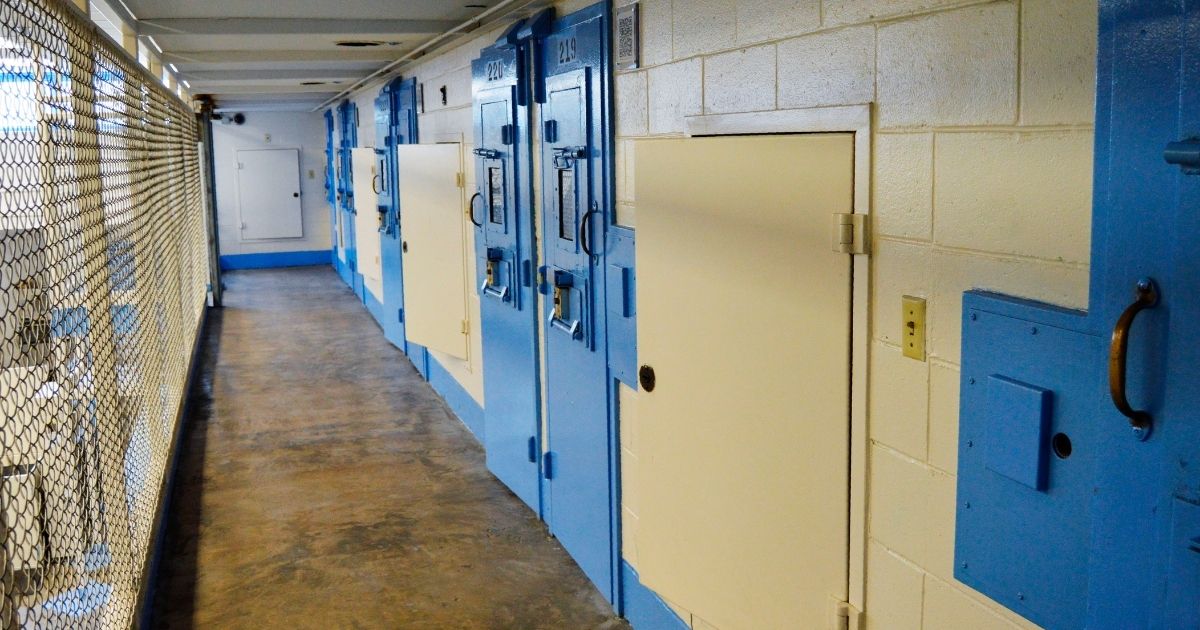
South Carolina Death Penalty Debate Part 2: Is Capital Punishment 'Pro-Life' or 'Anti-Life'?
This is the second in a series about efforts to expand capital punishment in South Carolina. The first, in which a conservative death penalty opponent argued the practice is “outdated,” can be found here.
As South Carolina lawmakers work to resume state executions, people on both sides of the death penalty debate continue to debate the necessity and morality of capital punishment.
South Carolina currently allows prisoners a choice between lethal injection and the electric chair, and inmates cannot die by an execution method they did not choose. Since the state’s supply of lethal injection drugs has expired, however, South Carolina has been unable to conduct executions.
According to The Associated Press, state senators approved a bill in a 32-11 vote on Tuesday that would require prison officials to execute criminals by firing squad or the electric chair if lethal injection is unavailable. A similar bill being considered in the House does not contain the firing squad alternative but may include it after senators vote on their version of the bill later this week.
The state has not put an inmate to death in nearly 10 years, but legislators’ efforts to change the laws governing executions could lead to their resumption.
The death penalty has long been a contentious issue. Proponents often say it is a necessary form of retributive justice, whereas anti-death penalty advocates say the state should not deprive people of their right to life.
At the center of the death penalty debate are two varying perspectives on how society should seek to punish crimes and whether there exist certain cases where the only acceptable punishment is death.
The Death Penalty Is an ‘Anti-Life Policy’ That Violates Human Dignity
Opponents of capital punishment often argue the ability to incarcerate criminals renders putting them to death unnecessary.
“Is South Carolina trying to tell us something about their prison system? Are they saying it’s so weak they’re incapable of incarcerating criminals adequately?” New Wave Feminists founder Destiny Herndon-De La Rosa said in an email to The Western Journal. “If not, then this proposal is completely unnecessary, and solely based in political theater to garner certain representatives more votes … at the expense of human lives.”
“More often than not, the death penalty is about vengeance. We know it’s not a deterrent, that it’s much more costly to tax payers than a life sentence, and that there are the rare cases where they execute innocent individuals,” she added. “As a prolife activist, I don’t believe in giving the government, any government, the power to kill its own people.”
Herb Geraghty, the executive director of Rehumanize International, is another pro-life advocate opposed to the death penalty. To Geraghty, capital punishment is an “anti-life policy” that violates one of the most sacred rights of all.
“If we are to say that the right to life is inalienable and intrinsic to us as human beings then no extrinsic quality, such as guilt, should ever be used to revoke that right,” Geraghty told The Western Journal. “The work of building a culture of life in this country will not be finished until every state has abolished this outdated, discriminatory, and unnecessary punishment once and for all.”
The Death Penalty Is a Pro-Life Policy and Serves as a Necessary Punishment
For death penalty proponents, however, the policy is necessary to punish those who commit certain crimes.
“The strongest argument for the death penalty is that no other punishment is commensurate with the crime of first-degree murder,” Nick Sammarco, host of the conservative podcast A House Divided, told The Western Journal. “To truly create a ‘pro-life’ nation, it is essential that society punish the most heinous crime — the intentional taking of an innocent life — more stringently than any other crime.”
Sammarco was critical of the country’s current process of executing criminals, however.
“Reform must be made to the appeals process and waiting periods before it is acceptable in my mind to reinstitute capital punishment on a broad-scale in any state or in the nation at-large,” he said.
Charles Stimson, a senior legal fellow at The Heritage Foundation, made similar arguments in a commentary published on the conservative think tank’s website. He conceded certain reforms can be made to the death penalty system, but he does not believe the system’s flaws should not prevent certain criminals from receiving “the ultimate punishment.”
“Death penalty opponents, quite understandably, note that there have been a number of death row inmates who have been exonerated through groups like the Innocence Project,” Stimson wrote. “Sadly, mistakes can happen. Indeed mistakes can happen on both sides when it comes to the death penalty.
“However, acknowledging that mistakes can occasionally occur in capital cases does not render the death penalty unjust any more than imposing a sentence of incarceration for a term of years is not rendered unjust simply because mistakes occasionally occur in non-capital cases.”
Truth and Accuracy
We are committed to truth and accuracy in all of our journalism. Read our editorial standards.
Advertise with The Western Journal and reach millions of highly engaged readers, while supporting our work. Advertise Today.












